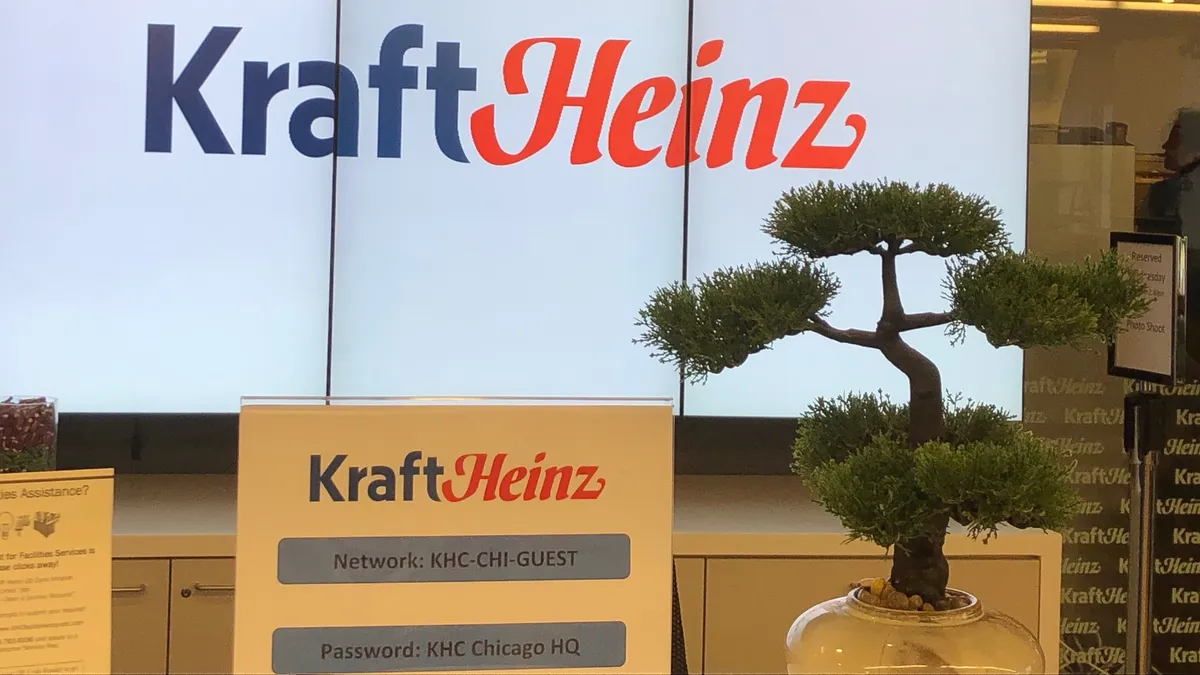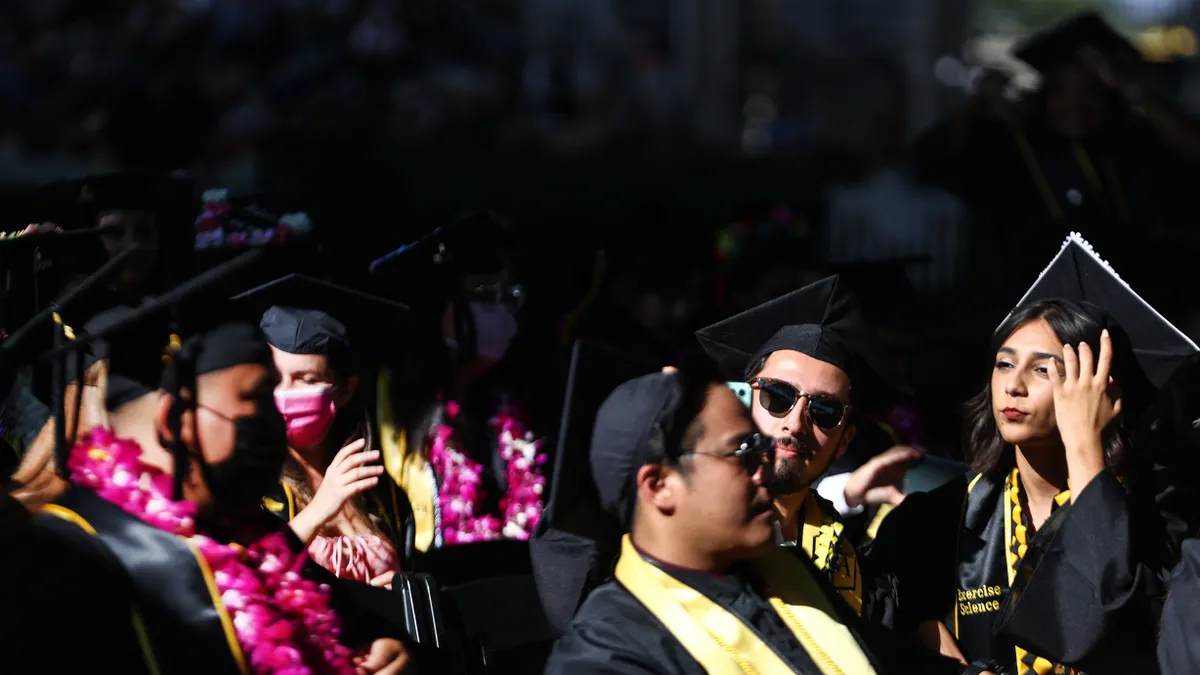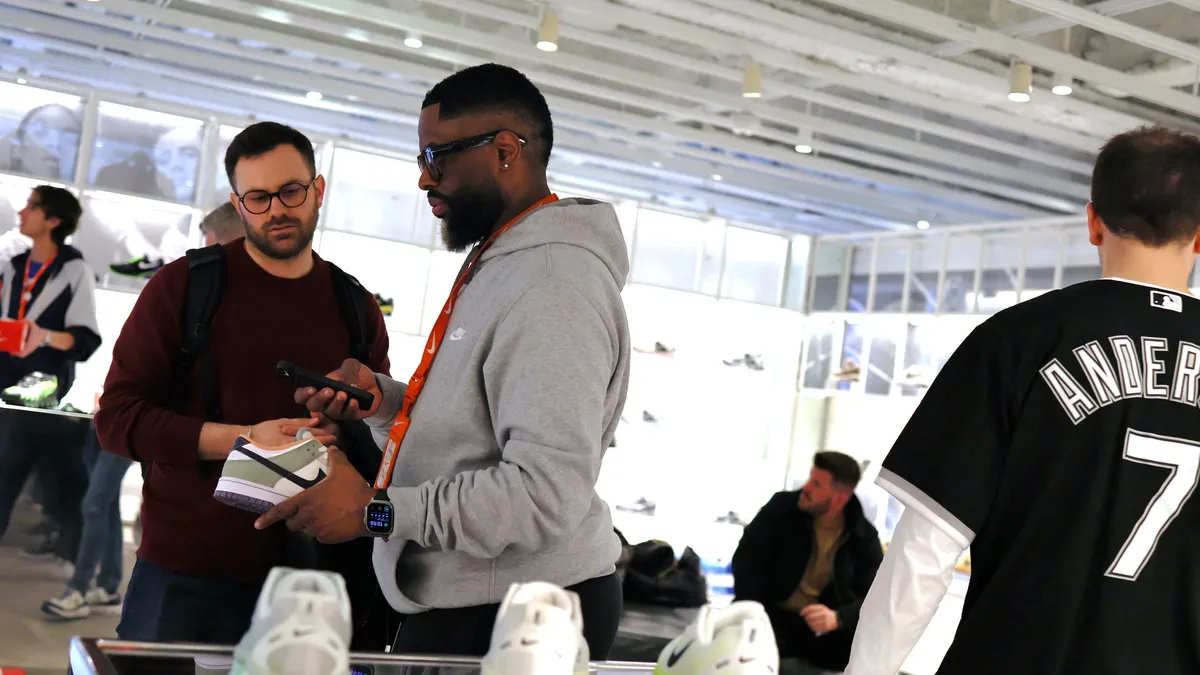When it comes to university recruitment, Hayden Kornblut, head of university relations at Kraft Heinz, knows the process from both sides of the interview desk.
He started his career with an internship at Bridgestone, where he got his hands dirty with oil and rubber in retail locations before moving into a recruitment role at the company. That experience gave him the background necessary to manage Bridgestone's intern program — and, in time, build the university recruitment team, an experience he eventually took to Kraft Heinz.
Kornblut joined Kraft Heinz 18 months ago, and today he leads the university relations team at Kraft Heinz. He spoke with HR Dive about how intern and trainee relations are integral to the Kraft Heinz program and the company overall.
Putting three verticals under one banner
The program has been in place since 2014, and his challenge was to take on both the internship program and the company's full-time trainee rotational program. Interns are junior and senior college students who work through the summer, while the trainee program places new employees into a variety of jobs throughout the company.
"We start with three verticals," Kornblut said. "These are areas we want to recruit for."
One vertical encompasses corporate jobs, including administration, finance and marketing. Sales forms its own vertical, supporting offices across the U.S. that work with large customers like Walmart. Manufacturing is the third vertical, which manages hires across the 39 plants Kraft Heinz has in the U.S.
In the past, Kraft Heinz was missing out on talent by going to campuses with three different programs, each targeted to their vertical, Kornblut said. Although centrally managed through his team, there was occasional overlap on campus, creating potential brand confusion and wasting resources. "We made the decision, with internal and external research, to combine into one program that serves all, with one brand and one program," he said. Kraft Heinz's 2019 class is in the current program, and the company will be recruiting 2020 students with the new hybrid recruiting structure, too.
Each campus recruiting event has an intern and a trainee component to reach the most potentials. The company goes to colleges to identify and recruit based on these three verticals, but they're not necessarily looking for an exact fit, Kornblut noted.
A culture of meritocracy
The company has students with history majors working in finance and engineering students working on marketing projects; the program seeks out those willing to experience part of the business beyond their major.
"Meritocracy in the foundation of our culture," said Kornblut. "We're looking for students who want to make an impact from the beginning — be given real work that they're able to show off their abilities early on. We look for people who can come in and take on a lot of things."
He added that "ownership mentality" goes a long way. The rotational aspect of the program allows students to get exposure to all parts of the business — and in the process, find something that may pique their interest.
The company will recruit 40 trainees and 40 interns this year. Notably, the trainee program is not a probationary period. They're full-time workers from day one, Kornblut said, going first into a 10-month rotational program before entering into a final placement. Trainees and interns go through the same vetting process, Kornblut said, and the goal is for all of them to end up with a job offer.
On the ground and beyond
Kraft Heinz has built out teams for every campus event. They're manned with an executive sponsor, who leads the team and may very well be an alumni of the program, Kornblut said. A campus captain is the overall strategist, and also generally a program alum, and other team members and alumni attend the events, reaching out to clubs and organizations on campus.
The basic recruitment package includes career fairs, info sessions, coffee chats and on-campus interviews. The company works directly with career services departments to establish relationships — a major focus of the program.
This past spring, Kraft Heinz started a virtual speaker series. Over the course of three months, the company offers a different virtual session with no talk of recruitment. During these sessions, experts discuss personal and professional development, how to optimize your LinkedIn profile, public speaking and the status of the industry. It's had a great response with 50 or more students per session, said Kornblut; "It's a no pressure environment to hear about Kraft Heinz in a different way."
Opening communication lines for growth
The university relations program works with an open-feedback line of communication those current and past. "We take feedback from current trainees on a weekly basis," said Kornblut, "during a weekly debrief of the good, the bad and the ugly and apply it to the current program, adjusting on the fly whenever we're able. We also apply those comments to the next year."
After the program, the trainees create a community of support; they meet at least twice a year as a group and once or twice a year individually to keep that connection and make sure they're on track with their personal and professional development. Once a trainee, always a trainee, Kornblut said — creating a cycle that enriches the company overall.
Correction: A previous version of this story misstated the number of plants Kraft Heinz has in the U.S.




















